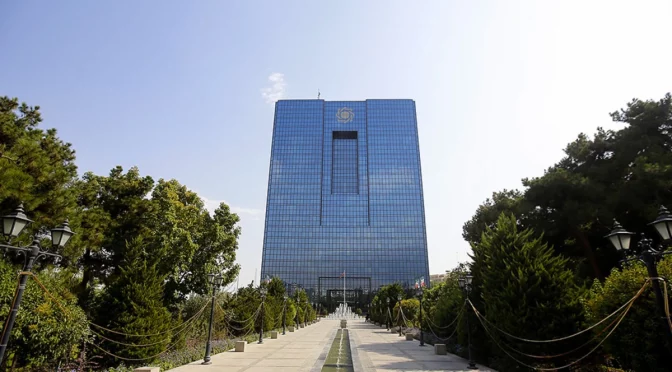The pursuit of inter-banking agreements comes amid efforts by Tehran and Moscow to strengthen their economies and bypass western sanctions.
The Islamic Republic’s Central Bank chief, Ali Salehabadi, has announced that Iran hopes to quickly implement inter-banking cooperation agreements signed in Moscow between Iran and Russia on 7 and 8 July.
“Merchants, businessmen and economists will see the results of these agreements” soon, Salehabadi said, adding that the memoranda of understanding (MoU) will “bolster the developing economic and energy ties between Iran and Russia.”
The Iranian bank official noted, however, that there were still some unresolved issues relating to the banking sphere between Tehran and Moscow.
This was specifically in reference to a plan which, “in the future, may link” the card paying systems of both countries, using a system similar to SWIFT, the predominant form of money transfer via banks.
During trade and energy talks held on 25 May between Russian and Iranian officials in Tehran, the two sides discussed the possibility of linking their national alternative card payment systems, due to major card networks, such as Visa and Mastercard, having blocked both countries due to western sanctions.
Salehabadi said there was still work to be done in relation to this project.
The move to implement inter-banking cooperation agreements comes amid a policy shift by Iranian President Ebrahim Raisi in planning for the success of the Iranian economy.
The new economic roadmap written by Tehran is designed to anticipate growth and success independently of the outcomes of the negotiations to revive the sanctions-removal deal in Vienna.
It also comes amid increased cooperation between Tehran and Moscow to strengthen trade ties and find ways to bypass sanctions imposed by the US and western nations.
On 8 July, the first transportation of goods from Russia to India via the International North South Transport Corridor (INSTC) was completed in coordination with the Iranian shipping firm, the Islamic Republic of Iran Shipping Line Group (IRISL).
According to Iranian officials, cargo transport from Russia to India through the INSTC will boost Iran’s transit revenue, ease its battle against the effects of US sanctions, and boost its economy.
The newly operational shipping corridor, which is beyond the reach of sanctions, also has the potential to transform Iran into a major transport hub.


